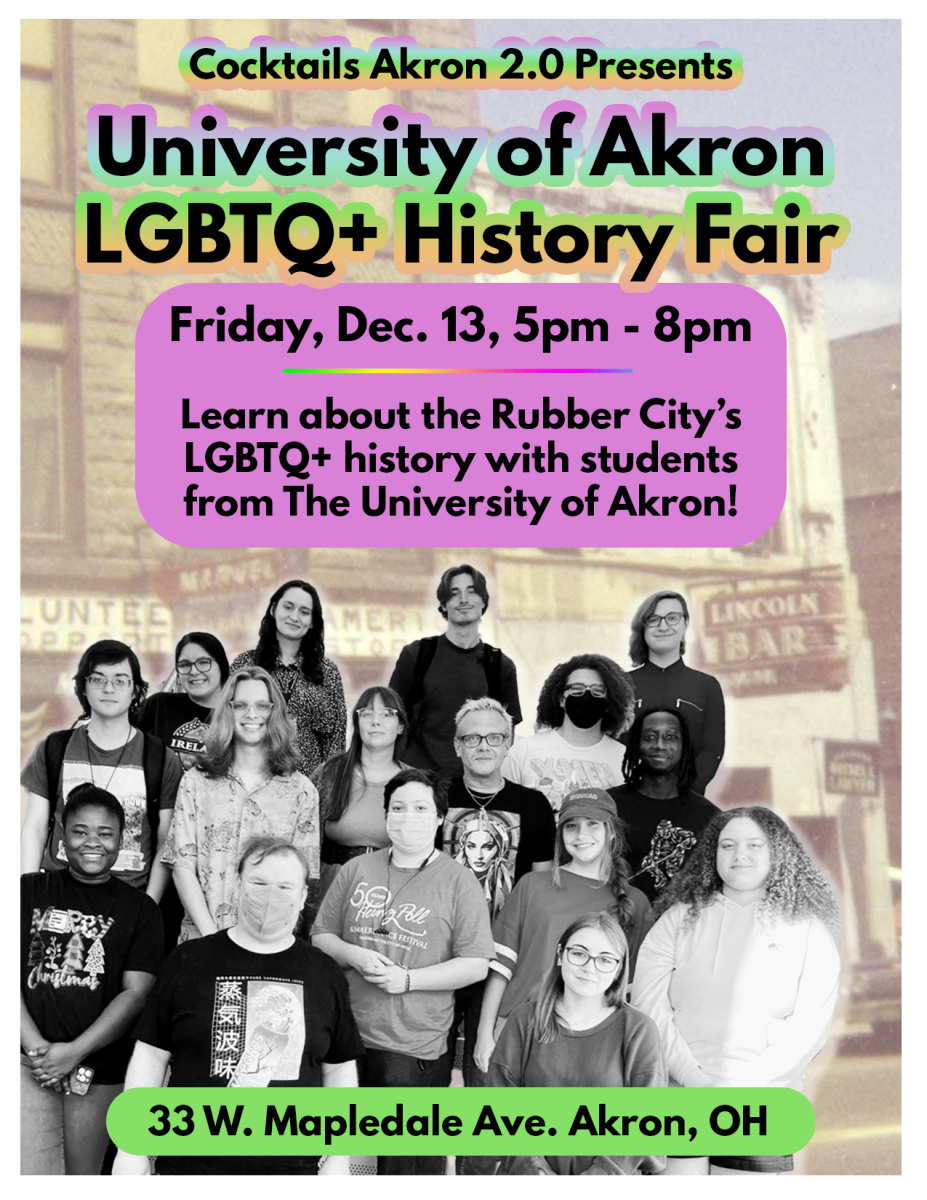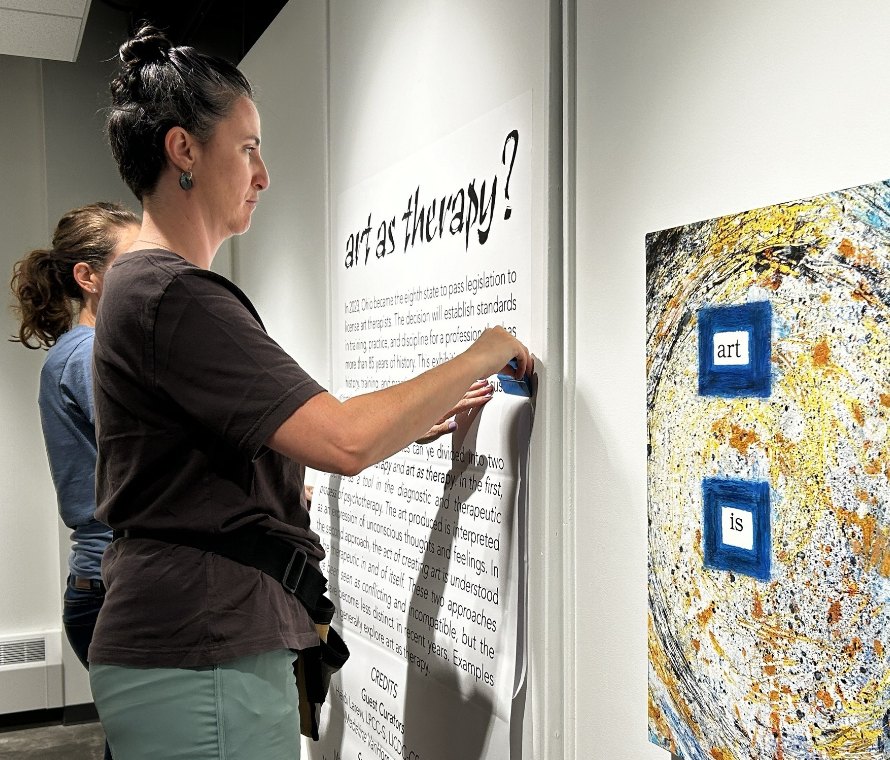Often when people hear the name William Shakespeare, they quiver in fear. However, not everyone quakes in their boots upon hearing this famous name. The University of Akron’s English Department hosted the 13th annual Shakespeare in the Spring event this past Thursday.
“
Often when people hear the name William Shakespeare, they quiver in fear. However, not everyone quakes in their boots upon hearing this famous name. The University of Akron’s English Department hosted the 13th annual Shakespeare in the Spring event this past Thursday.
This event is set to coincide with the Bard’s supposed birthday on April 23. Were he still living, this would have been his 477th birthday. Many people cease to be remembered after the deaths of those who immediately knew them; however, Shakespeare lives on through his drama and sonnets.
Having authored many of the most well-known tragedies, histories, comedies and romances known to the stage, along with many famous sonnets, his works have lived on in classrooms and theaters throughout each generation. As such, these works are constantly being reinterpreted and rejuvenated in order to attract new audiences to an old craft.
The event began with a different approach to Shakespeare’s sonnets. The sonnets, infamous to students for being difficult to understand, were performed as dramatic productions. Though Shakespeare is best known for his theatrical works that debate some of the most dramatic situations known to man, the sonnets can be seen as more relatable. These works discuss common issues and are far easier to grasp as humankind’s reality. However, with their eloquent language and structure, they are not looked upon with too kind of an eye by our generation.
M.A Candidate, and high school English teacher at Green High School Frank DeVitis takes an unusual approach when teaching the sonnets to his students. DeVitis has his students transform the sonnets, typically read straight from the page as seen, and perform them as dramatic productions. This acting troupe, called The Master-Mistress’s Men, consisted of 13 of DeVitis’s Shakespeare students. The dramatization of the sonnets gives a literal visual that stuck with the viewers and allow them to understand the message perfectly well. The performance by the students was part of the award-winning paper that DeVitis was honored for during the awards ceremony.
The second part of the event was a formal lecture, provided this year by Dr. Emily Detmer-Goebel, assistant chair and associate professor of English at Northern Kentucky University. Her lecture was entitled ‘The Bond Cracked’: Parent-(Adult) Child Relations in the Plays of Shakespeare. This discussion focused mainly on the early Shakespearian play Titus Andronicus and its many warped family issues.
Dr. Antonia Forster of Akron’s English Department stated that the talk was interesting and enjoyable, with something for the knowledgeable and something for those who don’t know much about Shakespeare. Titus is a rich subject for considering family relationships in Shakespeare. I have read an article on Titus by Dr. Detmer-Goebel and was interested to hear her in person.
Several students were also given awards for essays that they had submitted for this event. One such student, Pam Kellman, responded that, I think it’s cool that Akron’s English Department hosts an event like this to keep students involved with Shakespeare – it’s important stuff! I was also grateful to be recognized for my achievements in the classroom. Kellman, a junior English major, was one of six individuals who received awards for their achievements.
With a fascinating demonstration of teaching the Sonnets as mini-dramas and an excellent lecture on Shakespeare and Family Values, it is disappointing that this event does not have a larger audience or a wider reach into the community, said Dr. William Williams, professor within Akron’s English Department, reflecting on this year’s event. The event was concluded with the cutting of a birthday cake in honor of Shakespeare himself.
According to Dr. Joseph F. Ceccio, professor of English and Festival Chair this year’s celebration of the bard was the best attended, most interesting of our Shakespeare festivals so far.
“





